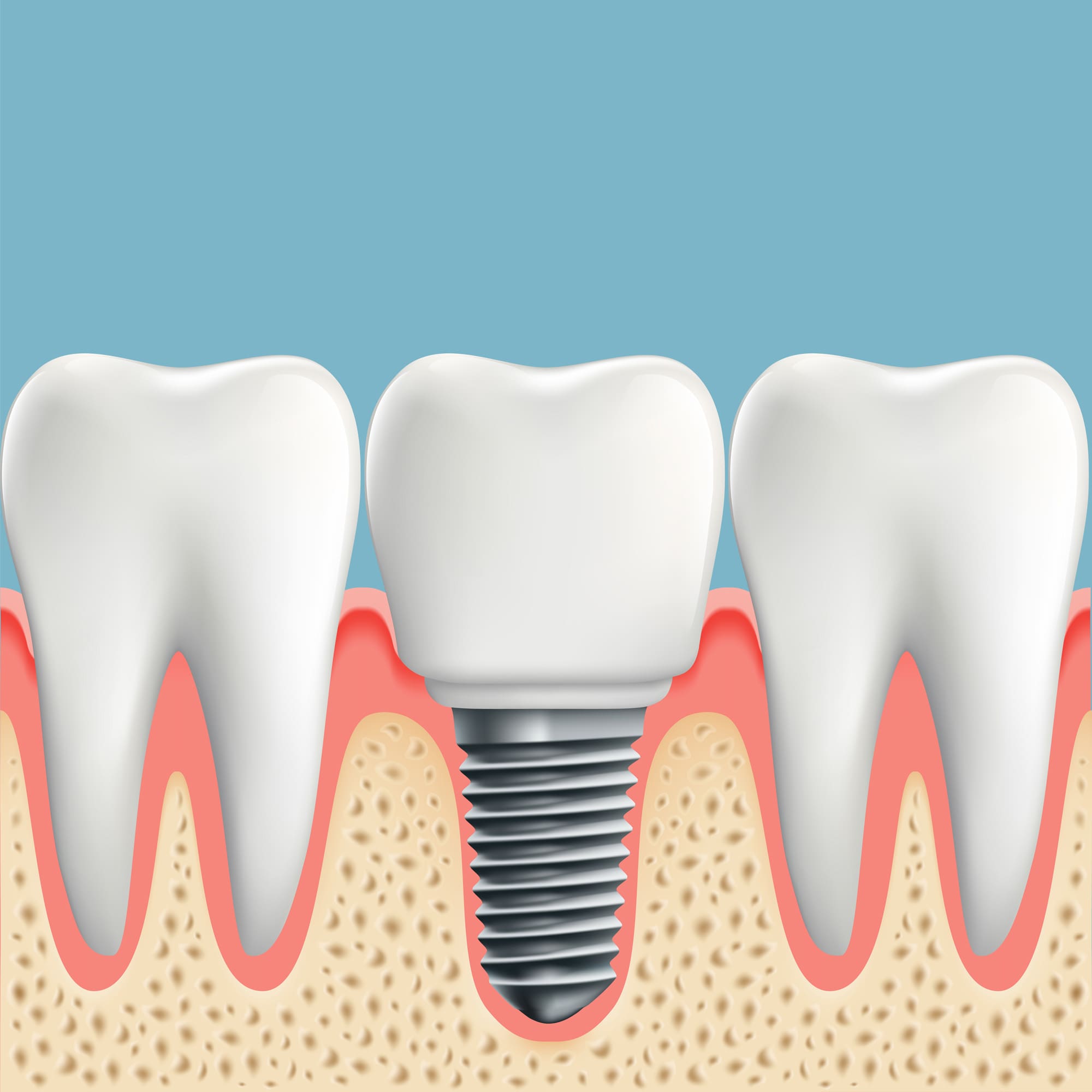Dental Implants: The Best Option for Replacement Teeth
When you lose a tooth, it’s imperative to find a replacement option as soon as possible. If the tooth is not replaced, the adjacent teeth will drift and cause issues with misaligned bite, changed facial contours, and even speech. Dr. Reece has documented long-term success with dental implant patients.

What Are Dental Implants?
The actual implant is a titanium post that is surgically placed into the jawbone where a tooth is missing. The implant and bone become fused together, forming a foundation for an artificial tooth. An abutment, on the end of the implant, extends through the gums and will be attached to the replacement tooth. The new tooth will look and function like a natural tooth.
The Surgical Process
In some cases, two surgeries, one to place the implant and another to place an abutment, are necessary for the implant process to succeed.

Dental Implant FAQ

Do you need dental implants? Call 970-245-2222 to be seen in our Grand Junction or Carbondale office today!
Contact Us
Grand Junction Location
Hours
Monday 8:00 AM - 4:30 PM
Tuesday 8:00 AM - 4:30 PM
Wednesday 8:00 AM - 4:30 PM
Thursday 8:00 AM - 4:30 PM
Friday 8:00 AM - 3:00 PM
Saturday Closed
Sunday Closed
Carbondale Location
Hours
We see patients in Carbondale every Thursday. If this location is more convenient for you, please ask us about it when you schedule your appointment.

